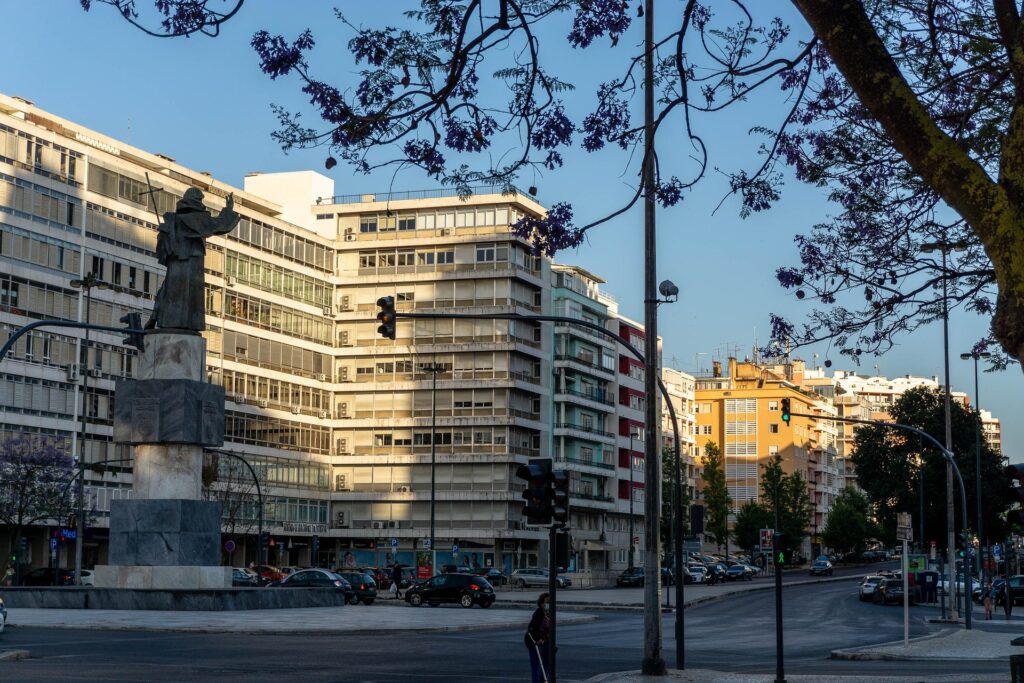Portugal’s real estate market has been a shining star on the global investment stage, consistently attracting savvy investors looking to capitalize on the nation’s undeniable charm and economic stability. Amid this thriving market, buy-to-let investments have emerge as a particularly enticing option for those seeking to make their mark in Portuguese property.
Buy-to-let mortgages in Portugal offer a strategic entry point into this bustling real estate landscape. In this article, we embark on a journey into the realm of buy-to-let mortgages, exploring why they are a compelling choice in Portugal’s booming real estate market and how investors can make the most of this exciting opportunity.
You may like to read our article about Portugal Buy-to-Let Investments.

Buy-to-let Mortgage Requirements
Requirements for a buy-to-let mortgage can vary depending on the lender and the country’s specific regulations. However, here are some common requirements that you may encounter when applying for a buy-to-let mortgage in Portugal
Your Age
Age is a central factor when a financial institution assesses risk profile. If you are still very young, the likelihood of changing jobs multiple times is quite high, and this factor of instability will not be beneficial.
On the other hand, from a certain age, you may only have access to shorter financing terms because there is a maximum age to consider at the end of the loan (most banks is 75 years), which must be align with the maximum possible financing term.
Professional Situation
This is the central element in any risk analysis of a housing loan or buy-to-let mortgage application. The source of income is what provides the assurance that you will be able to pay the monthly installment; therefore, this is one of the best indicators to assess the likelihood of clients fulfilling the obligations that a housing loan or buy-to-let mortgage entails.
Therefore, if you have been working for several years in a solid company with a good financial and reputational status, and your income is in line with the property you intend to purchase, these will important arguments for the application for a housing loan or buy-to-let mortgage to be approve.
Down-payment
What savings will you invest in the purchase of the house? It’s worth remembering that, according to the recommendations of the Bank of Portugal, the loan amount should only cover up to 90% of the value of the house to acquire, which means a down payment of at least 10% will be necessary. For non-residents in Portugal the minimum deposit is around 30% of the property value.
And why is this important for a financial institution? Well, because the larger the amount the client contributes to the purchase of the house, the lower the risk. On one hand, the loan amount is smaller in relation to the property’s value, and on the other hand, when the client invests their capital in the purchase, the likelihood of default is reduce.
Credit History
A strong credit history is a crucial factor when applying for a mortgage. Lenders carefully evaluate your credit history to assess your creditworthiness and determine the terms of your mortgage. Your credit score, derives from your credit history, plays a pivotal role. A higher credit score generally leads to more favorable mortgage terms, including lower interest rates.
Lenders also examine your payment history in Bank of Portugal, looking for consistent, on-time payments and scrutinizing any late payments, defaults, or collections. Maintaining a positive credit history, managing debt responsibly, and resolving any past credit issues are essential steps to secure a mortgage with favorable terms and rates.

Choosing a Buy-to-Let Mortgage
When it comes to making a wise investment in the thriving real estate market of Portugal, choosing the right buy-to-let mortgage is paramount. As an investor, you want to ensure that your financing aligns seamlessly with your property aspirations, financial goals, and the ever-evolving dynamics of the market.
Buy-to-let Mortgage Costs
A buy-to-let mortgage stands apart from the mortgage you might secure for your primary residence. Notably, the amount you’re eligible to borrow hinges primarily on the expected rental income from the property, although certain lenders may consider additional sources of income. As a general rule, many lenders stipulate that your rental income should exceed your mortgage payment by 20% to 40%.
Furthermore, when venturing into the buy-to-let realm, as a non-resident in Portugal you’ll be required to provide a more substantial deposit, typically no less than 30%. Additionally, it’s worth noting that interest rates on buy-to-let mortgages tend to higher compare to those on residential mortgages.
Fixed Rate vs. Variable Rate?
A fix-rate mortgage provides the assurance that your payments will remain consistent throughout the fixed term, irrespective of any potential increases in interest rates. Nevertheless, it’s worth noting that the initial rates for fixed-rate mortgages are typically higher compared to variable mortgages.
On the other hand, a variable-rate mortgage might offer a lower initial interest rate, but it is subject to fluctuations that hinge on your lender’s policies and shifts in the European Central Bank base rate. Consequently, your mortgage payments could either increase or decrease over the course of the mortgage term.
Interest-only or Repayment?
An interest-only mortgage entails making monthly payments solely toward the mortgage interest, leaving the initial borrowed amount untouch. Consequently, at the conclusion of the mortgage term, the borrowed sum remains outstanding, and interest continues to accrue on the entire balance each month until it’s settle.
Some buy-to-let investors opt for this approach as it results in lower monthly payments, facilitating compliance with the rental income prerequisites for buy-to-let mortgages. The associated risk lies in the possibility of a housing market downturn, which could lead to a property devaluation, potentially resulting in a substantial financial setback as the original borrowed amount still needs repayment.
Conversely, a repayment mortgage entails higher monthly payments, encompassing both interest and a portion of the borrowed amount. By the end of the mortgage term, your debt is entirely retired.

Frequently Asked Questions About Buy-to-Let mortgages in Portugal
What is a buy-to-let mortgage?
A Buy-to-Let mortgage is a type of mortgage loan designed specifically for individuals who want to purchase a property with the intention of renting it out to tenants. This type of mortgage is distinct from a standard residential mortgage, which is used to buy a home for personal occupancy.
Which mortgage is best for buy-to-let?
The preferred choice among many buy-to-let investors is the interest-only mortgage. This mortgage type offers the advantage of lower monthly repayments that can be easily covered by the rental income generated from the property.
What is the interest rate for buy-to-let mortgages in Portugal?
Interest rates for buy-to-let mortgages in Portugal can vary depending on the lender, the type of mortgage (fixed or variable), and market conditions. It’s advisable to shop around and compare offers to secure a competitive interest rate.
What is the minimum downpayment for a buy-to-let mortgage?
For non-residents in Portugal the minimum deposit is typically at least 30% of the property value.
Are there any restrictions on the type of properties for buy-to-let mortgage in Portugal?
Some lenders may have restrictions on property types, such as excluding commercial properties or certain holiday homes. It’s essential to check with your chosen lender for their specific criteria.
Can I use a buy-to-let mortgage for short-term rentals like Airbnb in Portugal?
Yes, it is possible to use a buy-to-let mortgage for short-term rentals like Airbnb in Portugal. However, you should inform your lender about your rental strategy, as terms and conditions may vary.
Do I need to reside in Portugal to apply for a buy-to-let mortgage?
No. Non-residents can apply for buy-to-let mortgages in Portugal. However, eligibility criteria may differ for residents and non-residents such as the minimum deposit.
How can I calculate the potential rental yield?
Rental yield is calculated by dividing the annual rental income by the property’s purchase price. It’s essential to consider other factors like maintenance costs and vacancy rates to estimate your actual yield.
What is the process for applying for a buy-to-let mortgage in Portugal?
The mortgage application process in Portugal typically involves gathering documentation, choosing a lender, property valuation, and approval. Working with a mortgage broker or financial advisor can streamline the process.
How much it cost a buy-to-let mortgage?
The cost of a buy-to-let mortgage in Portugal can vary depending on several factors, including the lender, the type of mortgage, the interest rate, the loan amount, and the duration of the mortgage.




